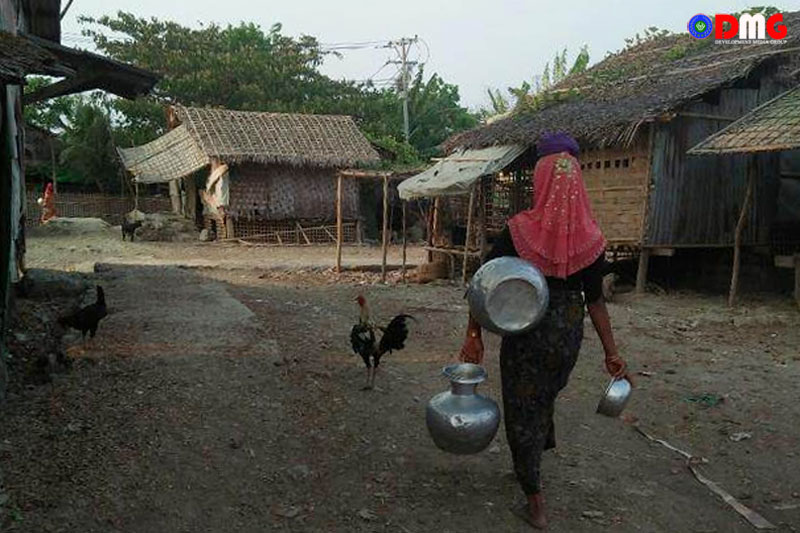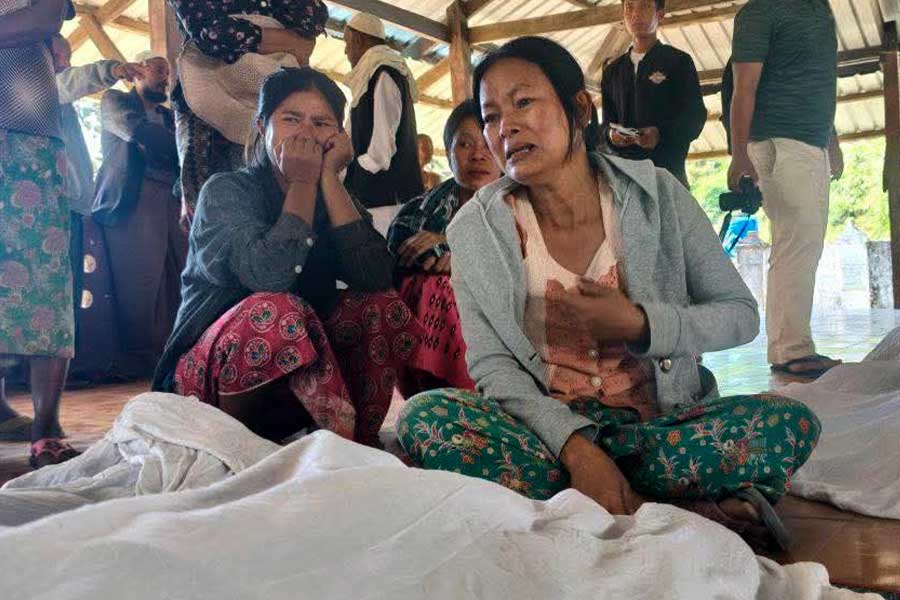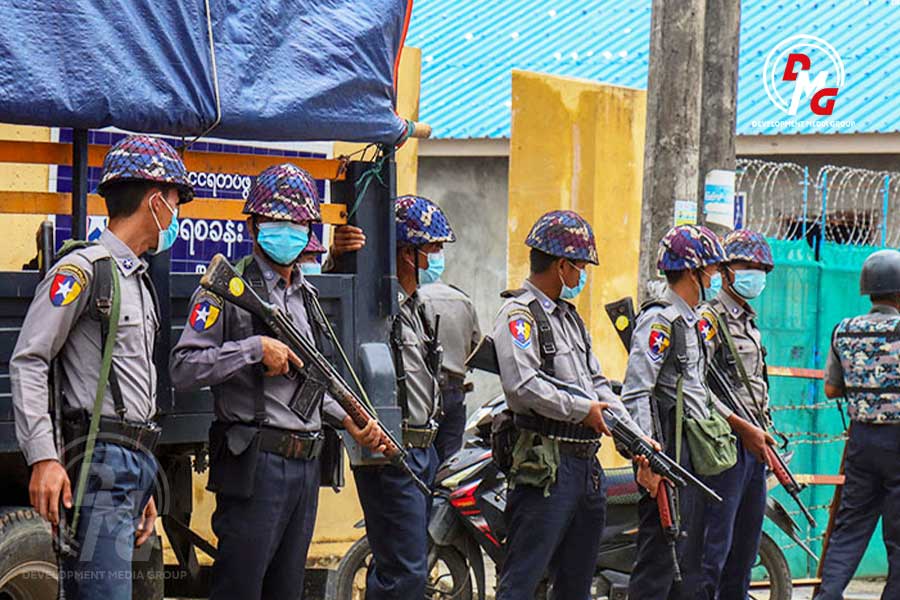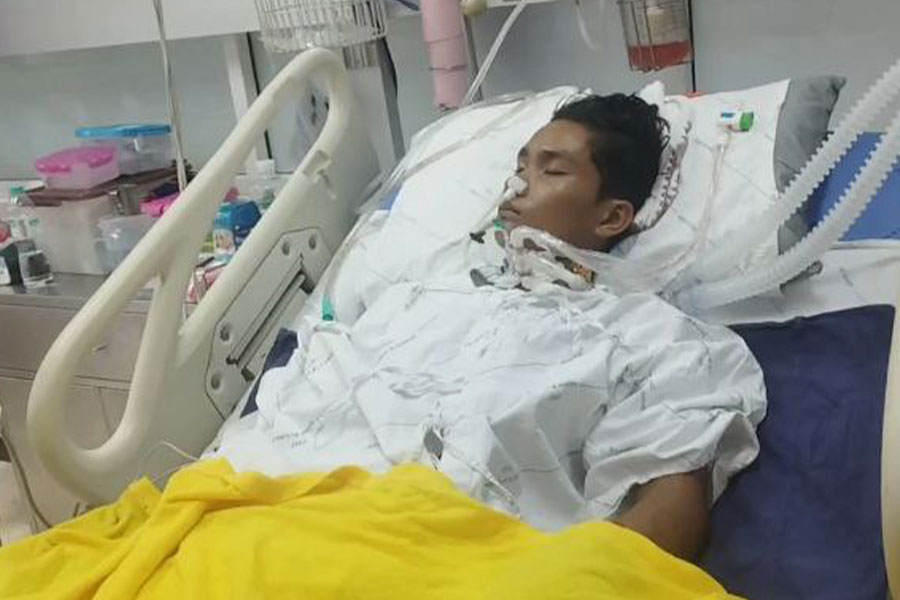- Junta expands naval presence along Arakan coast to regain lost territory
- Nearly 70 civilians and POW family members killed or injured by junta attacks in Arakan State in one month
- Junta accused of extorting money from detained Muslims in Sittwe
- Weekly Highlights from Arakan State (Jan 26 to Feb 1, 2026)
- Arakanese youth stabbed in Mae Sot urgently needs financial aid for medical treatment
Muslim IDPs ask UN aid agency to resume food package delivery system
Muslim internally displaced people (IDPs) in Arakan State have called on the World Food Programme (WFP) to switch back to the aid packages that were originally supplied to them instead of the current stipend-based system.
25 Apr 2023

DMG Newsroom
25 April 2023, Sittwe
Muslim internally displaced people (IDPs) in Arakan State have called on the World Food Programme (WFP) to switch back to the aid packages that were originally supplied to them instead of the current stipend-based system.
Previously, the UN humanitarian organisation provided individual Muslims with a basket of rice, one litre of cooking oil, one viss of peas, and eight grams of salt per month. It later replaced the original aid package with 21,000 kyats per month.
But IDPs are going hungry as food prices have soared across the country.
“The money is not enough as rice prices have increased. Previously, we could still scrape by with rice supplied by the WFP. So, we want to ask the WFP to switch back to the original aid packages,” said U Maung Tin Aye, manager of the Taung Paw Kan Muslim IDP camp in Myebon Township.
A steady increase in the cost of living is taking a heavy toll on the general public, and IDPs are particularly hard-hit, said a Muslim IDP from the Dar Paing displacement camp in Sittwe.
“A sack of rice has now reached 75,000 kyats. I wish the WFP supplied us with rice and oil like it did before,” he said.
Muslim IDPs have already submitted a request to the WFP, but the agency responded that it has faced certain difficulties delivering food packages.
Muslim IDPs have been forced to work outside the camps as the aid provisioning and stipends have proved to be inadequate, said U Kyaw Myint from the Thakkel Pyin Muslim IDP camp in Sittwe.
“Families that do not have male members are facing serious hardship. That 21,000 kyats is calculated based on commodity prices of the past. However, food prices have soared since. For example, a bottle of cooking oil has jumped from 2,000 kyats to 5,000 kyats now. And we only earn a little from doing casual jobs,” he said.
DMG has been unable to reach WFP to ask about if it has any plan to resume the original aid package.
Muslims in Sittwe, Myebon, Pauktaw, Kyaukphyu townships were forced from their homes to displacement camps due to intercommunal conflicts in 2012.
Authorities have restricted them from travelling within and out of Arakan State. Muslims say the travel ban robs them of their rights to work and receive healthcare services.
Since the ceasefire in 2020 between the Myanmar military and the Arakan Army, the Arakanese ethnic armed group has taken measures to improve relations between the Arakanese and Muslim communities.
In Sittwe, Minbya and Pauktaw, Muslims taking shelter in camps can now work in wards in towns, and there have been communications between Arakanese and Muslim villages in rural areas.















.jpg)

